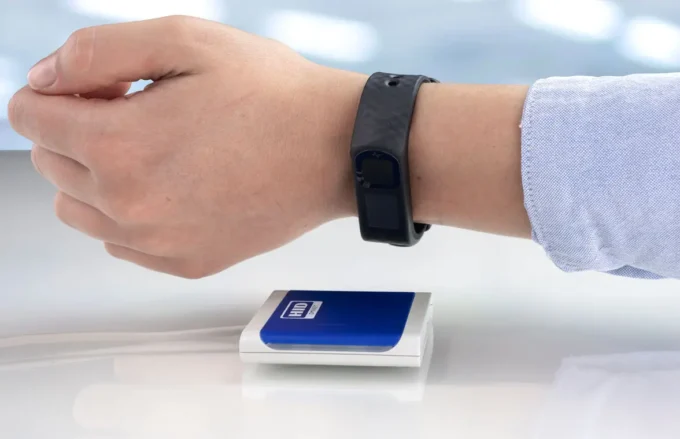
Source: megatruenet.com
Technology has rapidly advanced in recent years, permeating various aspects of our lives from unlocking smartphones to airport security checks. Now, imagine attending an event where your wristband not only grants you access but also identifies you through biometric data like fingerprints or even vein patterns.
It sounds straight out of a sci-fi movie, but the integration of biometrics into event wristbands is becoming a reality. While proponents hail it as the next step in security innovation, skeptics raise concerns about potential privacy infringements.
Let’s delve deeper into this intriguing debate and explore the implications of biometrics in event wristbands.
The Rise of Biometric Wristbands
Biometric event wristbands offer a tantalizing prospect of heightened security at events. Traditional methods like tickets or RFID tags can be lost, stolen, or replicated, leading to unauthorized access. In contrast, biometric data, being unique to each individual, provides a more robust authentication system.
By linking attendees directly to their biometric information, organizers can significantly reduce the risk of fraud and enhance overall security. Moreover, the seamless integration of biometrics into event wristbands simplifies the entry process, minimizing queues and improving the overall attendee experience.
Beyond security, biometric wristbands hold the promise of streamlining event management processes. With biometric authentication, organizers can track attendees’ movements more efficiently, gather valuable insights into crowd flow, and optimize resource allocation.
This data-driven approach enables organizers to tailor the event experience, from adjusting venue layouts to offering personalized services based on attendees’ preferences.
Ultimately, the adoption of biometric wristbands can revolutionize how events are organized and experienced, ushering in a new era of efficiency and customization.

Source: nfcw.com
Privacy Concerns and Ethical Dilemmas
While biometric wristbands offer undeniable benefits, they also raise significant privacy concerns. The collection and storage of biometric data pose inherent risks, as any breach could lead to identity theft or unauthorized access to personal information.
Moreover, the widespread adoption of biometrics in events could normalize constant surveillance, eroding individuals’ right to privacy. Attendees may feel uneasy knowing that their biometric data is being collected and stored without their explicit consent, raising questions about consent and autonomy in the digital age.
The integration of biometrics into event wristbands also presents regulatory challenges. Current privacy laws may not adequately address the unique issues surrounding biometric data, leaving gaps in protection for consumers.
Without clear regulations governing the collection, storage, and usage of biometric information, there is a risk of exploitation by both event organizers and third-party vendors. Striking the right balance between security measures and individual privacy rights requires careful consideration and robust regulatory frameworks to safeguard against potential abuses.

Source: wristbandcreation.com
Conclusion
In conclusion, the integration of biometrics into event wristbands represents a double-edged sword, offering enhanced security and efficiency while raising valid concerns about privacy and ethics.
As technology continues to evolve, it is imperative that stakeholders engage in transparent dialogue to address these concerns and establish ethical guidelines for the responsible use of biometric data.
Only through careful consideration and collaboration can we harness the full potential of biometric technology while safeguarding individual rights and liberties in the digital age.



